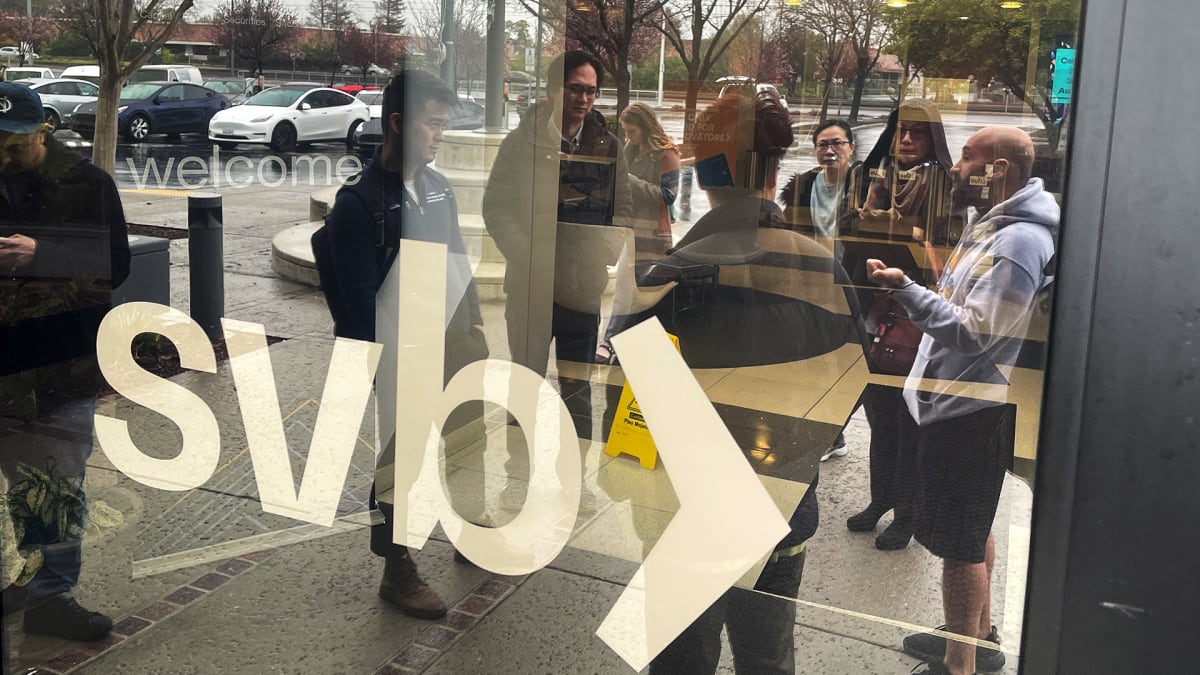
The smoke has barely begun to clear over the Silicon Valley Bank collapse, but the impact will reverberate for years.
The good news is the U.S. government has stepped in to make good on all SVB consumer and business deposits, but few banking experts believe such interventions will be a common occurrence in future bank crashes.
DON"T MISS: Social Security is a Solvable Problem
The problem is deposit protection and it's a big one.
Only the first $250,000 in customer bank deposits are insured by the U.S. Federal Deposit Insurance Corp. Any deposits above and beyond that figure are deemed as "uninsured" and thus unpayable if the financial institution goes under -- unless of course the Federal Reserve and Treasury step in.
Here’s What to Do If You Have Excess Bank Deposit Assets
Well-heeled banking customers with more than $250,000 in bank deposit cash do have alternative deposit options, with these asset-saving strategies at the top of the list.
Keep calm and carry on. Even though the U.S. banking system currently has $3 trillion in “excess deposits” in the U.S. according to the U.S. Comptroller of the Currency, the fact is that bank failures are rare.
Sign up for Real Money Pro to learn the ins and outs of the trading floor from Doug Kass’s Daily Diary.
A case in point. 2021 and 2022 saw no bank failures and only four financial institutions went belly-up in 2020. That’s good news, considering there are over 4,800 federally insured U.S. banks operating today.
“Consumers should not panic,” said veteran banking compliance expert and Virginia state senate candidate Angela Rowe. “Their deposit accounts are safe as long as their funds are at an FDIC-insured financial institution and below-insured caps.”
Unlike the vast majority of banks, Silicon Valley Bank “was involved in riskier industries, such as tech startups and cryptocurrencies and their business model did not adjust to the changes in the broader economy, such as rising interest rates,” Rowe added.
Spread your wealth. Use cash-sweeping services like IntraFi Network Deposits to route excess cash above the $250,000 amount into bank accounts at qualified FDIC banks.
Divvy it up. Affluent banking customers will need to be organized, but spreading cash among multiple banks is highly doable. For example, a bank depositor with $1,000,000 in cash can spread four separate $250,000 deposits into separate bank accounts, thus providing full FDIC protection.
“If you have more funds than the FDIC categories allow, you can deposit money into another FDIC-insured financial institution and get additional, separate overage there by doing the same thing,” said DoubleCheck Solutions chief executive officer Joel Schwartz.
Max out. Digital bank deposits like Max can automatically spread cash across multiple bank accounts.
The idea is to spread cash across multiple bank accounts, opened in your own name.
“That way you could keep all of your cash below the FDIC limit at each bank with direct access to each account and no single point of failure,” said MaxMyInterest Founder Gary Zimmerman. “By default, Max’s settings help you keep all your funds below the FDIC insurance limit at each bank.”
Open a joint account. Any spousal bank account holder can open a joint savings account at a bank, with each spouse eligible for up to $250,000 in FDIC insurance. That’s a great way to protect $500,000 or $1,000,000 in deposits.
Use a brokerage account. Brokerage firms are another excess bank deposit option. With a brokerage account, financial consumers can steer excess household cash into bank-like certificates of deposit from brand-name U.S. financial institutions. Not only does this strategy provide extra deposit safeguards, but it also offers multiple CD options.
Before opening a brokerage account, however, do your due diligence first.
“Make sure you stay with financial services and products you understand and can make an informed decision on the risks,” Schwartz said. “Speak to your trusted financial advisor to make sure your funds are in investments that are based upon your comfortable risk tolerance.”
Leverage a credit union. Most U.S. credit unions are insured by the National Credit Union Administration (NCUA), which offers coverage up to $250,000 for their members. Additionally, a solid credit union option may be a local one, allowing for more user-friendly face-to-face banking relationships.
“Speak to your preferred credit union about your coverage,” Schwartz advised.
Expand Your opportunities. Michael Wagner, co-founder, and chief operating officer of Omnia Family Wealth says he's been fielding calls from concerned clients but believes there are both opportunities and risks for investors in the wake of the SVB collapse.
“Many investors are now inquiring about to safe-haven assets, and I’m particularly liking treasuries and gold,” Wagner said.
Wagner suggests opening an account at another bank just in case, and if you're a business owner, he suggests putting at least months’ worth of payroll in there.
“Lightning rarely strikes twice in the same spot,” he said. “The odds of you having your main bank and your backup bank go under at the same time are very slim.”
You Have Options
The above strategies aren't the only way to safeguard excess financial institution deposits, but they all work and are immediately available for any anxious banking consumer worried about excess banking deposits.
The key is to stay calm and prudently examine your options.
“While having several options to access funds when you need it is helpful, insured financial institutions are a super safe place,” Schwartz said. “Talk to your financial advisor to make a suitable financial plan - it’s worth your time.”







